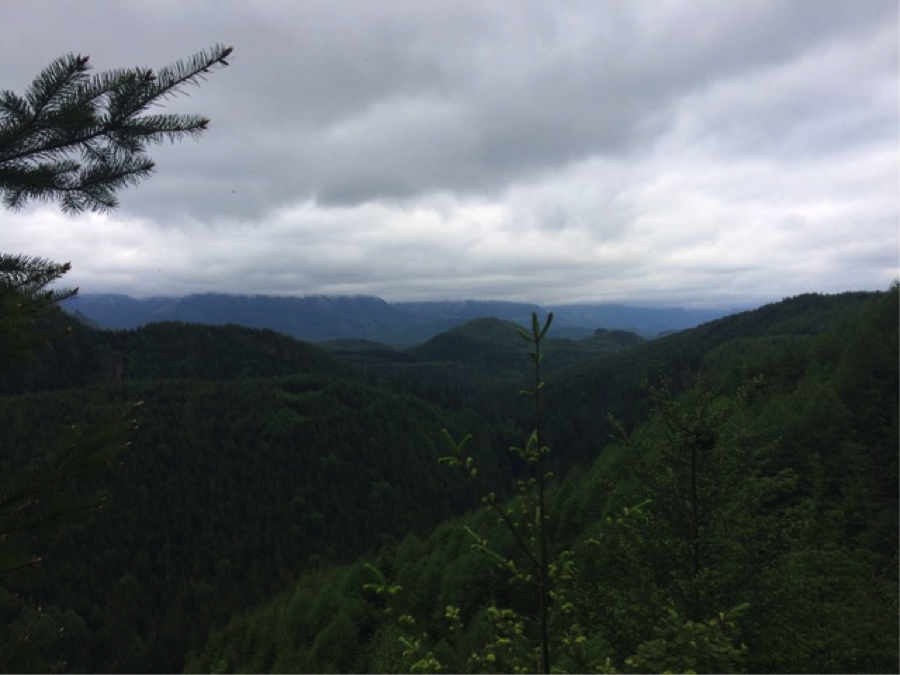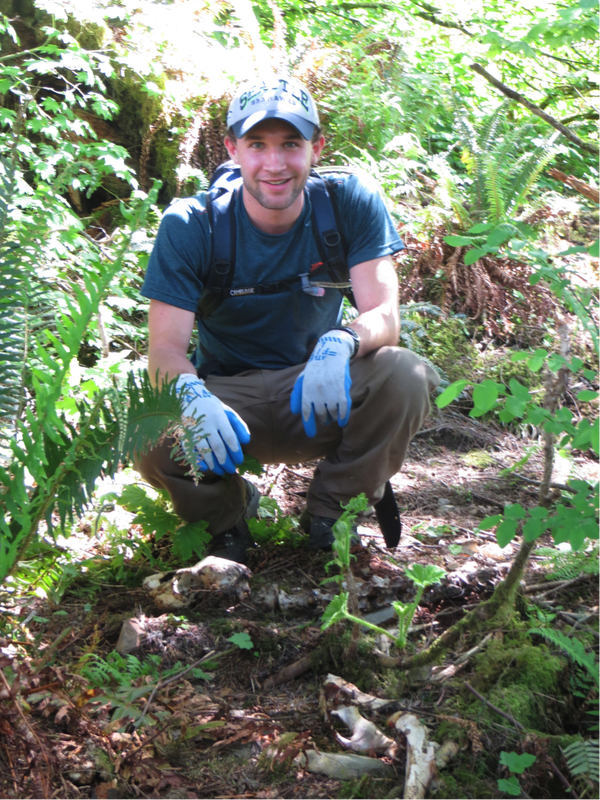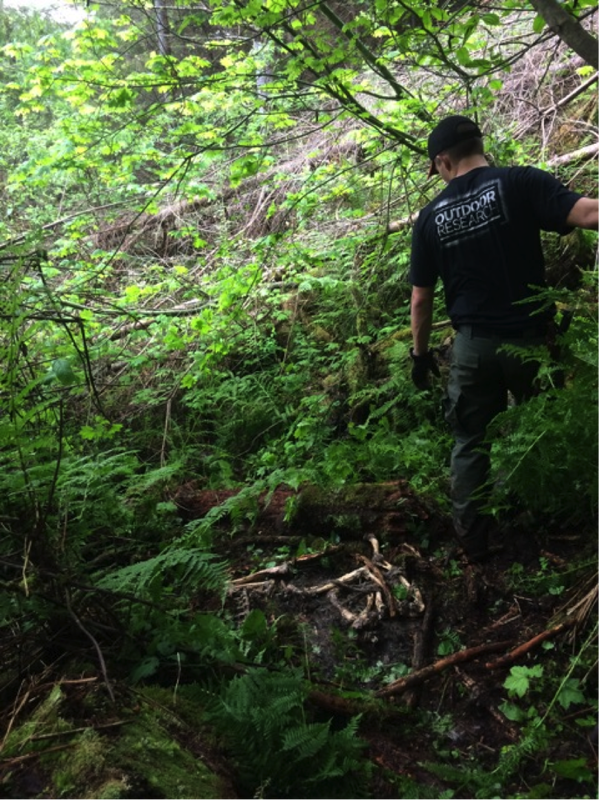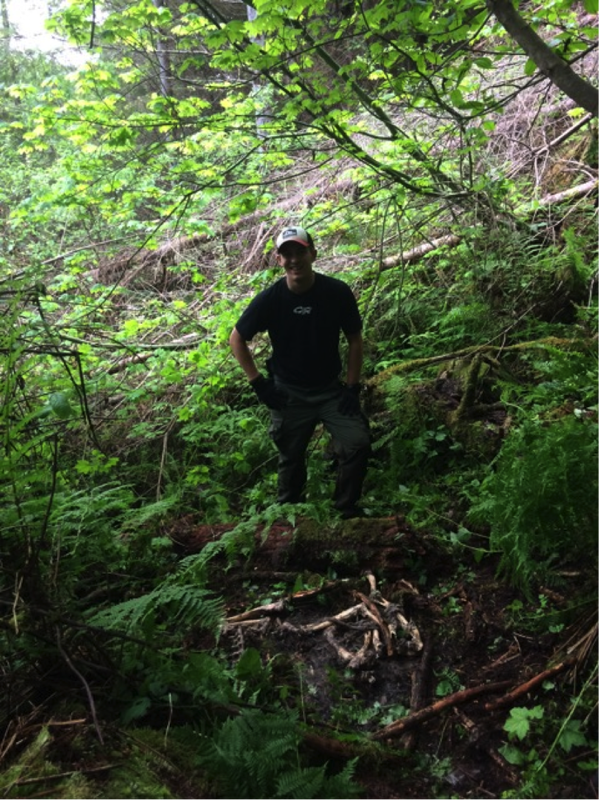By Clint Robins
Canyon Creek, Snoqualmie Forest
“Do not try to fight a lion if you are not one yourself."
- African proverb
Cougars, also known as mountain lions, pumas, or catamounts, are opportunistic hunters that typically stalk their prey before taking it down from behind. Cougars rely on cover to hunt successfully, and frequently make kills near forest edges. My research explores cougar kill site locations and their habitat characteristics to determine the extent of understory cover associated with successful cougar foraging along western Washington’s urban-to-wildland gradient. Results from the project will be used to assist wildlife managers in identifying habitats in residential areas that are associated with cougar hunting behavior as part of ongoing efforts to minimize cougar depredations and human-wildlife conflict.
The Cougar project’s 2015 field season is underway, with data collection taking place in the Snoqualmie and Markworth Forests. The study site’s proximity to Seattle (30 miles) allows undergraduates and volunteers to readily contribute to data collection. Currently, there are seven assistants working on the project. Volunteers learn how to locate cougar kills, navigate rugged terrain, use prey remains to determine prey age and condition, and quantify forest characteristics.
“Do not try to fight a lion if you are not one yourself."
- African proverb
Cougars, also known as mountain lions, pumas, or catamounts, are opportunistic hunters that typically stalk their prey before taking it down from behind. Cougars rely on cover to hunt successfully, and frequently make kills near forest edges. My research explores cougar kill site locations and their habitat characteristics to determine the extent of understory cover associated with successful cougar foraging along western Washington’s urban-to-wildland gradient. Results from the project will be used to assist wildlife managers in identifying habitats in residential areas that are associated with cougar hunting behavior as part of ongoing efforts to minimize cougar depredations and human-wildlife conflict.
The Cougar project’s 2015 field season is underway, with data collection taking place in the Snoqualmie and Markworth Forests. The study site’s proximity to Seattle (30 miles) allows undergraduates and volunteers to readily contribute to data collection. Currently, there are seven assistants working on the project. Volunteers learn how to locate cougar kills, navigate rugged terrain, use prey remains to determine prey age and condition, and quantify forest characteristics.
Connor Meyer at a kill by F4 (adult female)
Nick Ulacia at a kill by F8 (adult female)
The Predator Ecology Lab Cougar Project emphasizes volunteer contributions and uses such opportunities as a means of increasing data collection while disseminating information about cougar predatory behavior. With the help of volunteers, we hope to provide novel information on how predator behavior and landscape features are intricately linked.
The Predator Ecology Lab Cougar Project emphasizes volunteer contributions and uses such opportunities as a means of increasing data collection while disseminating information about cougar predatory behavior. With the help of volunteers, we hope to provide novel information on how predator behavior and landscape features are intricately linked.





 RSS Feed
RSS Feed